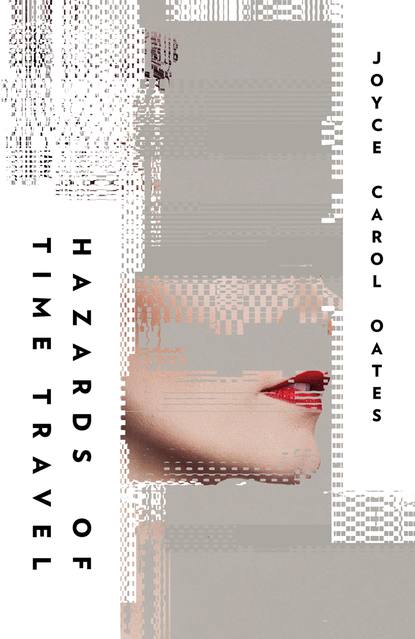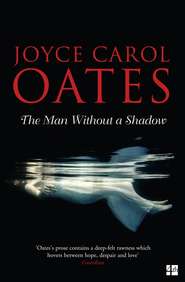По всем вопросам обращайтесь на: info@litportal.ru
(©) 2003-2024.
✖
Hazards of Time Travel
Настройки чтения
Размер шрифта
Высота строк
Поля
Before teletransportation they’d inserted a microchip into a particular part of my brain called the hippocampus, where memory is processed before being stored elsewhere in the brain. At least, I thought this must have happened. I did not think it had been a dream.
Part of my scalp had been shaved, a pie-shaped wedge of skull removed, the microchip installed. (Evidently) I felt no pain. A zombie does not feel pain. Even the sawed-out portion of the skull and the lacerated scalp were cold-numb and remote to me. And yet I felt such a powerful wave of gratitude, I could have wept—They did not remove my parents from me. They left me my parents at least.
For that part of my brain might have been removed, which contained all memory of my parents.
In Exile you cling to what you have, that has not (yet) been taken from you.
From this cold place I was carried, with others who’d been teletransported, in a vehicle resembling an emergency medical van.
The vehicle did not move rapidly. There was no siren.
This was not an emergency but routine.
The vehicle made stops at several destinations, before mine. In my semiconscious state I had little awareness of what was happening. I was trying to speak to my parents whose faces were vivid to me in their concern for me. I was trying to say In four years I will see you again. Don’t forget me!
I could not have said if I was seventeen years old, or seven years old.
I could not have said which year this was. I had no idea where I was.
We had left the lights of a city and were traveling now in a vast rural night. It was astonishing to me, stars in the night sky overhead were large and luminous as I had never seen stars before in my old, lost life.
The air was purer here, in Zone 9. So sharp to inhale! The night sky was not obscured by the scrim of pollution to which we were all accustomed in the old, lost life.
We who were being carried in the van in the night were strapped to stretchers and could not turn our heads to regard one another. We were very tired, for we’d come a long distance.
It might have been the case, not all of the teletransported had made the journey fully alive. It was not clear to me initially whether I was fully alive.
One of the other teletransported was hyperventilating in panic. Something must have gone wrong with his medication. I could not turn my head to see. Or, my head was strapped in place. I held myself very still and breathed calmly as Dad would instruct me in the presence of the Enemy. I thought—They will vaporize him. It was a desperate thought—They will vaporize him, and not me.
At the next stop, I was taken from the van.
Unstrapped from the stretcher, and made to stand.
“Use your legs, miss. There is nothing wrong with your legs. Your brain sends the signal—left leg, right leg. And your head—lift your head.”
I was able to walk a few yards, before I collapsed.
In the morning I woke beneath a thin blanket, on a lumpy cot. The bandages were gone from my head. The straps were gone from my wrists and ankles. Most of the grogginess had faded.
It would be explained to me: I was a freshman student at Wainscotia State University in Wainscotia Falls, Wisconsin. I had arrived late the previous night, feverish. I had been brought to the university infirmary and not to my residence. And now, in the morning, since my fever had disappeared, I was to be discharged.
“Your things have been delivered to your residence, Miss Enright.”
“Yes. Thank you.”
“Your residence is Acrady Cottage, on South University Avenue.”
“Thank you.”
Acrady Cottage. South University Avenue. It was up to me to find this place, and I would do so.
I was feeling hopeful! Small gulping waves of wonder would rush over me from time to time, amid even the paralysis of fear.
For the crucial matter was: my parents were living, and I would return to them, in four years. My parents had not been “vaporized” even in my memory.
And the crucial matter was: “Mary Ellen Enright” was evidently a healthy specimen. She had not died in teletransportation. If her brain had been injured, it was not a major injury.
If it was a minor injury, maybe it would heal.
When I tried to rise from the cot, however, I felt faint, and would have lost my balance—but the strong-muscled young woman in the white nurse’s uniform reached out to catch me.
“There you go, ‘Mary Ellen’! On your way.”
She laughed. Our eyes locked, for a fleeting second.
She had pinned-back blond hair, so pale it was almost white. Above her left breast, a little plastic name tag—IRMA KRAZINSKI.
She knows who I am. Yet, she is not an Enemy.
Later I would think—Maybe she is one like me and will pity me.
AT THE RESIDENCE a large cardboard box awaited M. E. ENRIGHT in the front foyer.
“You are—‘Mary Ellen’? This just arrived.”
The box measured approximately three by four feet. It was so crammed, one of its sides was nearly bursting.
And the box was badly battered, as if it had come a long distance, in rainy weather. Transparent tape covered it in intricate layers crisscrossing like a deranged cobweb. Even with a pair of shears provided by the resident adviser of Acrady Cottage it was very difficult to open.
“My! Someone took care that this box would not rip open in delivery!”
Inside were clothes: several skirts, blouses, sweaters, a pair of slacks, a navy-blue wool jumper, a fleece-lined jacket, flannel pajamas, white cotton underwear, white cotton socks, a pair of sneakers, and a pair of brown shoes identified by the resident adviser as “penny loafers.” There were also “Bermuda shorts” and a “blazer”—clothes of a kind I had never seen before. And sheer, long “stockings”—I’d never seen before. All these items were secondhand, rumpled, and smelled musty.
I was staring inside the box. I felt dazed, dizzy. I thought—These are castoff clothes of the dead.
“Shall I help you carry these upstairs? It might be more practical just to leave the box here and take your things up in our arms …”
“No. I can take them by myself. Thank you.”
The resident adviser, Miss Steadman, was being very kind. But I did not want even to look at her. I did not want to speak with the woman more than necessary and I did not want to be alone with her in the room to which I was assigned for even a few minutes.
I did not want her to see these clothes close up. I did not feel comfortable with her registering that, to me, some of these things were unfamiliar. Nor did I want her to smell the sour, stale odor that lifted from them, any more than she already had.
I did not want her to feel sorry for me. That poor girl!—indeed, she is poor.
Also, Miss Steadman’s words, her manner of speech, were strange to me. It was clear that she was speaking English yet so slowly, with such odd nasal vowels, it made me anxious to listen to her.
At the bottom of the box was an envelope with M. E. ENRIGHT stamped on it. I would not open this envelope until I was alone in room 3C when I would discover that it contained five twenty-dollar bills that were crisp as if freshly printed, and a stiff sheet of paper headed THE INSTRUCTIONS.











